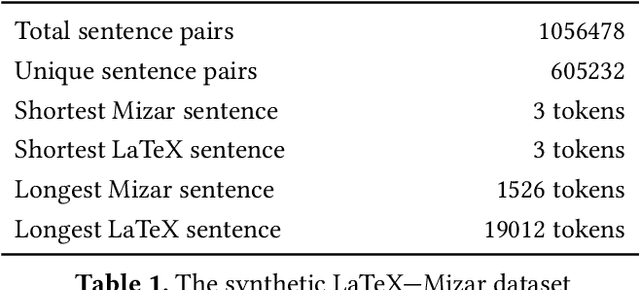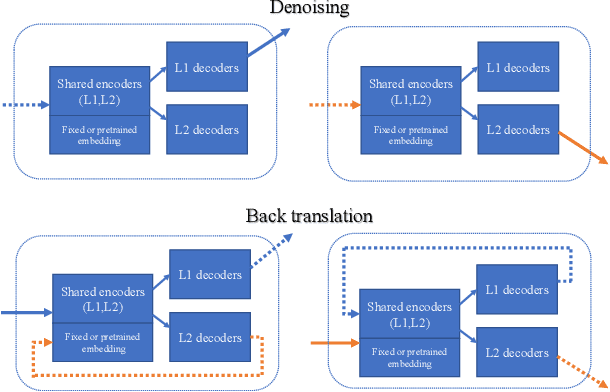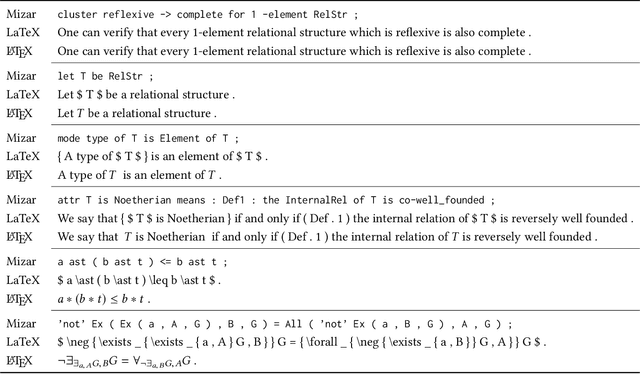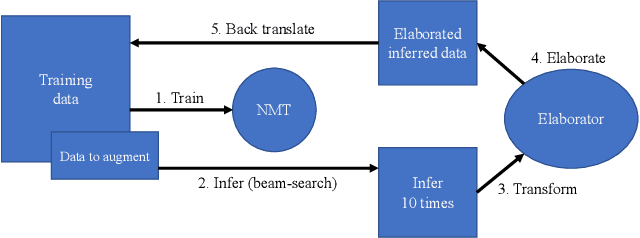Exploration of Neural Machine Translation in Autoformalization of Mathematics in Mizar
Paper and Code
Dec 13, 2019



In this paper we share several experiments trying to automatically translate informal mathematics into formal mathematics. In our context informal mathematics refers to human-written mathematical sentences in the LaTeX format; and formal mathematics refers to statements in the Mizar language. We conducted our experiments against three established neural network-based machine translation models that are known to deliver competitive results on translating between natural languages. To train these models we also prepared four informal-to-formal datasets. We compare and analyze our results according to whether the model is supervised or unsupervised. In order to augment the data available for auto-formalization and improve the results, we develop a custom type-elaboration mechanism and integrate it in the supervised translation.
 Add to Chrome
Add to Chrome Add to Firefox
Add to Firefox Add to Edge
Add to Edge